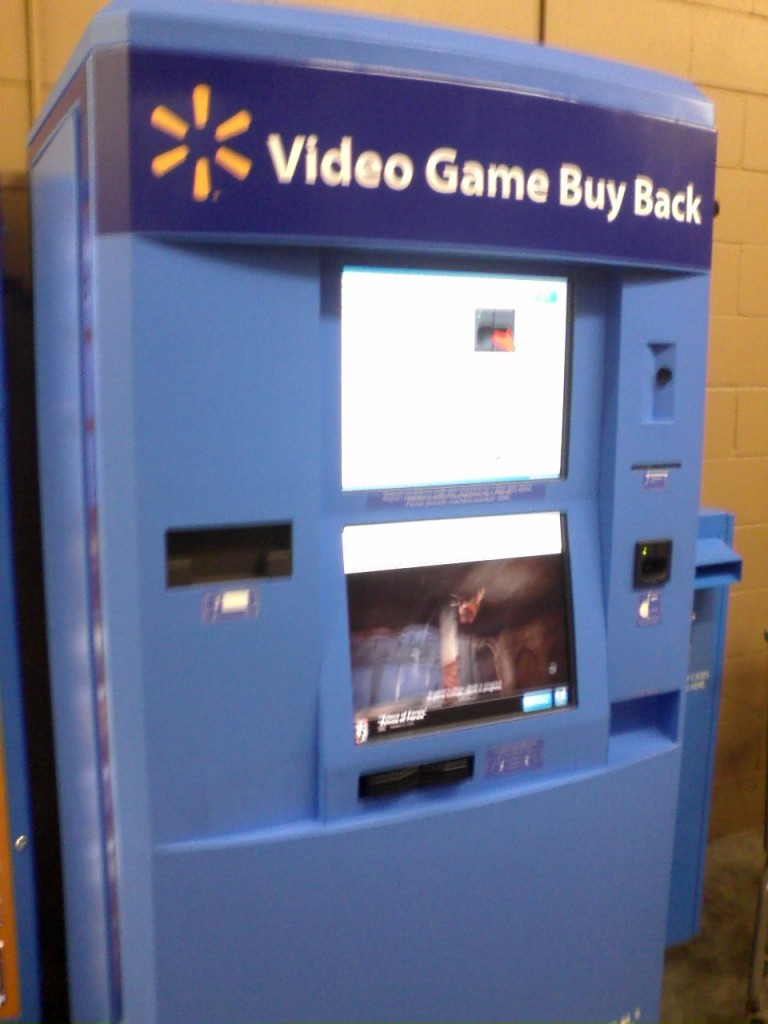Best Buy, Wal-Mart End Used Game Kiosk Flirtation
 When it comes to trading in used games, there really is no stopping Gamestop.
When it comes to trading in used games, there really is no stopping Gamestop.
Best Buy and Wal-Mart, who both experimented with used game kiosks last year, are pulling out, according to IndustryGamers. Both companies relied on a third-party, E-Play, to run the kiosks, and will remove the machines over the next few weeks. E-Play’s Web site has a sombre little message saying they’ve suspended operations, and thanking customers.
In addition to offering credit or debit card credit in exchange for used games, the kiosks rented DVDs (as long as there wasn’t a Redbox machine in the store as well), Blu-ray discs and video games.
A couple guesses why the pilot programs failed: Unlike Gamestop, where you can call to find out a game’s trade-in value, a kiosk is unpredictable, and the prices E-Play offered — $25 for new titles down to 50 cents for throwaways — isn’t better than anywhere else. Marketing and awareness could’ve come into play as well. If you call Gamestop, you’ll likely hear, “Thank you for calling Gamestop, where we buy and sell used games” on the other end. Somehow, “Welcome to Wal-Mart, check out that kiosk over there” doesn’t have the same ring.
All’s not lost for trading games outside of GameStop. Toys R’ Us, which began buying used games in select markets last year, expanded the program nationwide in September. Amazon will buy your old games in exchange for online store credit, and Wal-Mart still sells used games online, but does not buy them. Still, none of these competitors offer the whole package of buying and selling used games. Local stores and smaller chains, such as Game Crazy, are still around (barely), and thrifty gamers will still rely on Craigslist, eBay and Goozex.
But for most of the United States, for quickly unloading a used game and getting another one in its place, GameStop’s got it locked down.
Comments are closed
Read more:













By Jared Newman | Thursday, February 4, 2010 at 5:33 pm